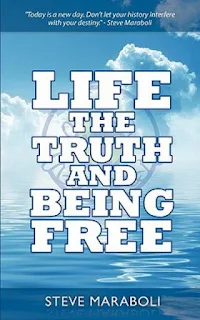
Sun Tzu
Sun Wu (simplified Chinese: 孙武; traditional Chinese: 孫武; pinyin: Sūn Wǔ), style name Changqing (長卿), better known as Sun Tzu or Sunzi (simplified Chinese: 孙子; traditional Chinese: 孫子; pinyin: Sūnzǐ; pronounced [swə́n tsɨ̀]), was an ancient Chinese military general, strategist and philosopher who is traditionally believed to be the author of The Art of War, an influential ancient Chinese book on military strategy. Sun Tzu has had a significant impact on Chinese and Asian history and culture, both as an author of The Art of War and through legend.
Sun Tzu, also known as Sun Tze or Sun Wu in other translations, was a historical figure whose authenticity is questioned by historians. Traditional accounts place him in the Spring and Autumn Period of China (722–481 BC) as a military general serving under King Helü of Wu, who lived c. 544–496 BC. Modern scholars accepting his historicity place the completion of The Art of War in the Warring States Period (476–221 BC), based on the descriptions of warfare in the text, and on the similarity of text's prose to other works completed in the early Warring States period.
Traditional accounts state that his descendant, Sun Bin, also wrote a treatise on military tactics, titled Sun Bin's Art of War. Both Sun Wu and Sun Bin were referred to as Sun Tzu in classical Chinese writings, and some historians believed that Sun Wu was in fact Sun Bin until Sun Bin's own treatise was discovered in 1972. During the 19th and 20th centuries, Sun Tzu's The Art of War grew in popularity and saw practical use in Western society, and his work continues to influence both Asian and Western culture and politics.
The oldest available sources disagree as to where Sun Tzu was born. The Spring and Autumn Annals states that Sun Tzu was born in Qi, while the later Records of the Grand Historian (Shiji) states that Sun Tzu was a native of Wu.
Both sources agree that Sun Tzu was born in the late Spring and Autumn Period of China (722–481 BC), and that he was active as a general and strategist, serving the king of Wu, King Helü, in the late sixth century BC, beginning around 512 BC. Sun Tzu's victories then inspired him to write The Art of War. The Art of War was one of the most widely read military treatises in the subsequent Warring States Period (475–221 BC), a time of constant war among seven nations (Zhao, Qi, Qin, Chu, Han, Wei and Yan) who fought to control the vast expanse of fertile territory in Eastern China.
One of the more well-known stories about Sun Tzu, taken from Shiji, illustrates Sun Tzu's temperament as follows: Before hiring Sun Tzu, the King of Wu tested Sun Tzu's skills by commanding him to train a harem of 180 concubines into soldiers. Sun Tzu divided them into two companies, appointing the two concubines most favored by the king as the company commanders. When Sun Tzu first ordered the concubines to face right, they giggled. In response, Sun Tzu said that the general, in this case himself, was responsible for ensuring that soldiers understood the commands given to them. Then, he reiterated the command, and again the concubines giggled. Sun Tzu then ordered the execution of the king's two favored concubines, to the king's protests. He explained that if the general's soldiers understood their commands but did not obey, it was the fault of the officers. Sun Tzu also said that, once a general was appointed, it was his duty to carry out his mission, even if the king protested. After both concubines were killed, new officers were chosen to replace them. Afterwards, both companies performed their maneuvers flawlessly.
Shiji claims that Sun Tzu later proved on the battlefield that his theories were effective (for example, in the Battle of Boju), that he had a successful military career, and that he wrote The Art of War based on his tested expertise. However, Zuo Zhuan, an earlier historical text which provides a much more detailed account of the Battle of Boju, does not mention Sun Tzu at all.
Sun Tzu's descendant, Sun Bin, also became a famous scholar of the military arts.
Quotes·Quotation by Sun Tzu
War
¶ 兵者,詭道也。故能而示之不能,用而示之不用,近而示之遠,遠而示之近。
All warfare is based on deception. Hence, when we are able to attack, we must seem unable; when using our forces, we must appear inactive; when we are near, we must make the enemy believe we are far away; when far away, we must make him believe we are near.
¶ 知彼知己百戰不殆。
If you know the enemy and know yourself, you need not fear the result of a hundred battles.
¶ 故曰:知彼知己,百戰不殆;不知彼而知己,一勝一負;不知彼,不知己,每戰必殆。
So it is said that if you know your enemies and know yourself, you can win a hundred battles without a single loss. If you only know yourself, but not your opponent, you may win or may lose. If you know neither yourself nor your enemy, you will always endanger yourself.
http://en.wikipedia.org/wiki/Sun-Tzu
.jpg)







